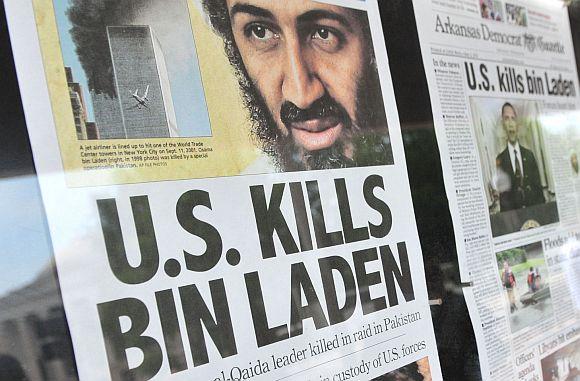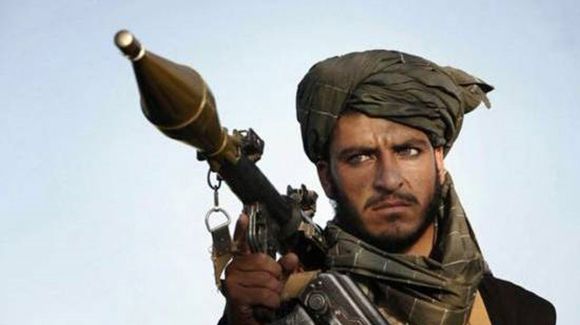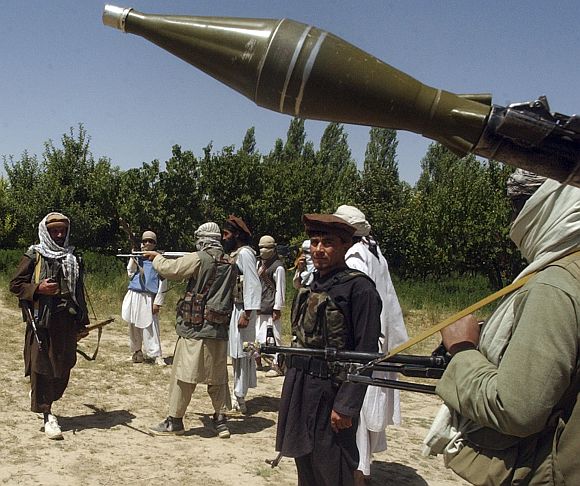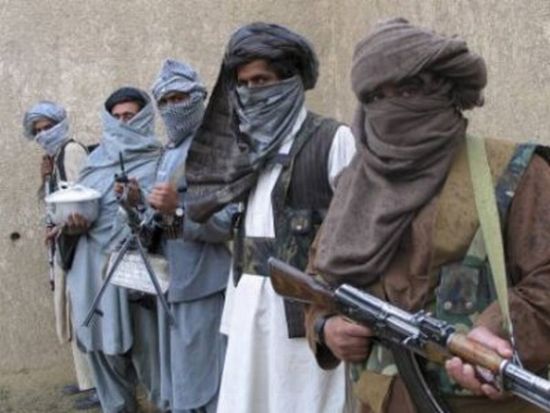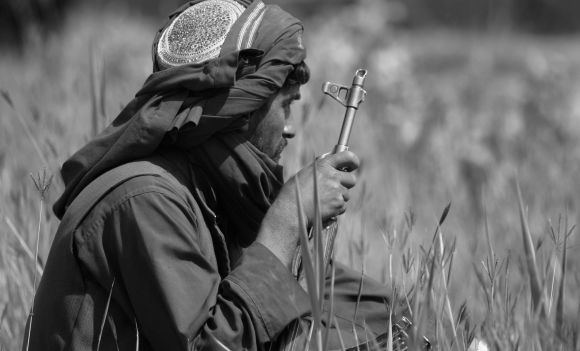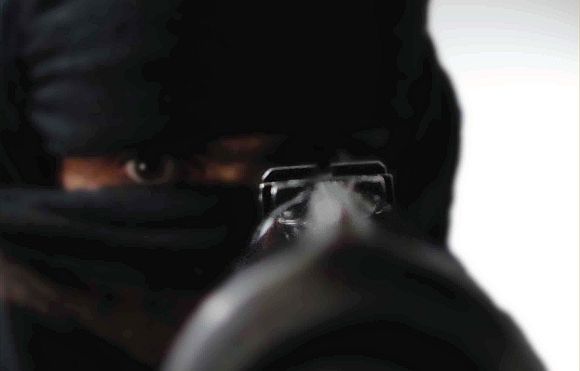 | « Back to article | Print this article |
A year later: Al Qaeda refuses to die with Osama
Al Qaeda is no more a cohesive organisation with a lucid structure and has splintered over the years, giving rise to lots of other groups, both inside and outside Pakistan writes Amir Mir
As the first anniversary of Osama bin Laden's May 2 killing approaches, it appears that the dynamics of Al Qaeda-sponsored terror campaign on the Pak-Afghan border belt have not changed much and the situation for the US-led international community remains as precarious as ever.
While bin Laden's death certainly struck a major blow to Al Qaeda and its jihadi affiliates in the Waziristan tribal region bordering Afghanistan, Pakistan continues to be a hotbed of Islamic extremism and militancy which have refused to die with bin Laden.
The killing of the world's most sought after terrorist on May 2, 2011 was undoubtedly a huge success for the Americans because his continuing existence a decade after the 9/11 attacks in the United States was encouraging Al Qaeda and Taliban-linked extremists.
However, a year after bin Laden's death, the terrorist group he had founded in 1988 to overthrow the US-dominated world order, continues to pose a grave threat to the world as it keeps surviving and thriving on the Pak-Afghan tribal belt, having established an effective jihadi network which increasingly exploits its Pakistani affiliates to carry on its global revolutionary agenda.
Click on NEXT to read further...
A year later: Al Qaeda refuses to die with Osama
Before Osama's death, international terrorism experts were focused only on the dangers being posed by the growing 'Talibanisation of Pakistan'. But in the aftermath of his killing, these experts are paying extra attention to the bigger risks being posed by the 'Pakistanisation of Al Qaeda'.
Since former US President George W Bush's declaration of war against global terrorism in September 2001, the US and its allies have claimed to have killed or captured more than 75 per cent of senior Al Qaeda leaders. But the frequency of terrorist attacks worldwide being attributed to the international terrorist group has increased considerably, as compared with the pre-9/11 period.
The current spate of high-intensity terrorist attacks even after Osama's death, make obvious that Al Qaeda's core elements are still resilient and his outfit is cultivating stronger operational connections which radiate outward from their hideouts in the Pakistani tribal belt to affiliates scattered throughout the Middle East, North Africa and Europe.
Therefore, a year after the death of its founder at the hands of the Americans, Al Qaeda not only remains in business in its traditional stronghold in the Waziristan tribal region but has clearly advanced to the urban areas of Pakistan.
Click on NEXT to read further...
A year later: Al Qaeda refuses to die with Osama
But the most worrying aspect of the prevalent situation remains the growing belief of the Obama administration that if there is one country that matters most to the future of Al Qaeda, it is none other than Pakistan.
The US administration has already claimed that the Al Qaeda chief Dr Ayman al-Zawahiri was hiding in Pakistan's tribal areas, adding that the United States would like to see Pakistanis target him.
Out of Al Qaeda network's 20 leaders listed after the 9/11 attacks, Zawahiri is the only one to have survived the decade-long US-led war against terrorism and is now leading the outfit as Osama's successor.
In fact, terrorism experts say, long before Osama's death, Al Qaeda had adapted itself to survive and operate without him, ensuring that the threat his terror network poses will live well beyond his demise.
Click on NEXT to read further...
A year later: Al Qaeda refuses to die with Osama
Even though Osama's physical elimination had delivered demoralising blow to Al Qaeda, the truth is that his terrorist outfit is still active and kicking.
This is mainly due to the fact that the present-day Al Qaeda is a de-centralised and compartmentalised organisation which no longer falls into the category of classical definition of a terror group as such.
Al Qaeda is no more a cohesive organisation with a lucid structure and has splintered over the years, giving rise to lots of other groups, both inside and outside Pakistan.
There are different jihadi factions in different regions, which are slackly affiliated with Al Qaeda, like for instance the Hakeemullah Mehsud-led Tehrik-e-Taliban Pakistan, which is a conglomerate of anti-state jihadi groups operating from the country's border belt with Afghanistan.
Click on NEXT to go further...
A year later: Al Qaeda refuses to die with Osama
Ideological ties bind Al Qaeda and the Tehrik-e-Taliban to throw out international forces from Afghanistan. The meteoric rise of the Pakistani Taliban militia especially after the 9/11 episode has literally pushed the Pakistani state to the brink of civil war, claiming over 35,000 precious human lives in terrorism-related incidents between 2001 and 2011.
Terrorism experts say Al Qaeda's success in forging close ties to Pakistani jihadi groups has given it an increasingly secure haven in the mountainous tribal areas of the country, which has replaced Afghanistan as a key state for the training and indoctrination of Al Qaeda recruits to carry out operations abroad and for training of those indoctrinated and radicalised elsewhere.
Al Qaeda leadership's choice of using the North and South Waziristan tribal agencies as their hideouts has enabled the outfit to build a new power base, separate from Afghanistan.
As a result, despite Pakistan's extensive contribution to the global war on terrorism, questions persist about the extent to which Al Qaeda and its allied groups are operating within Pakistan.
Click on NEXT to go further...
A year later: Al Qaeda refuses to die with Osama
Going by international media report, on the eve of bin Laden's first death anniversary, the Central Intelligence Agency has shared intelligence with its Pakistani counterparts that the Pakistan-based Al Qaeda leadership is planning to carry out major terror attacks in Europe and America in the first week of May 2012.
Therefore, the international community keeps portraying Pakistan as a breeding ground for Taliban militia and a sanctuary for the fugitive Al Qaeda leaders who have already established large bases in the Federally Administered Tribal Areas (FATA) of Pakistan and are carrying out cross-border ambushes against the US-led Allied Forces from their camps in the mountainous region.
The common belief that Al Qaeda is getting stronger even after Osama's death is evident from the fact that many of the key Pakistani jihadi groups, which are both anti-American and anti-state, have already joined hands with Al Qaeda to let loose a reign of terror across Pakistan.
Click on NEXT to go further...
A year later: Al Qaeda refuses to die with Osama
The Pakistanisation of Al Qaeda is actually rooted in decades of collaboration between elements of the Pakistani security establishment and the extremist jihadi movements that created and nurtured Al Qaeda, which has evolved significantly over the years from a close-knit group of Arab Afghans to a trans-national Islamic global insurgency, being dominated by more and more Pakistani militants.
With a gush of indoctrinated youth flooding towards the sphere of jihad and joining the Al Qaeda cadres, Pakistan remains a budding place for the recruitment and training of jihadis as the fugitive leadership of the terrorist group keeps hiring recruits with the help of their local affiliates in Pakistan, mainly to bolster the manpower of Al Qaeda that has grown from strength to strength in recent times.
Therefore, despite the physical elimination of Al Qaeda founder Osama bin Laden, his terrorist outfit remains a potent threat for the global peace because it keeps blooming and thriving on the Pak-Afghan tribal belt.
Click on NEXT to go further...
Top photo features of the week
Click on MORE to see another set of PHOTO features...
